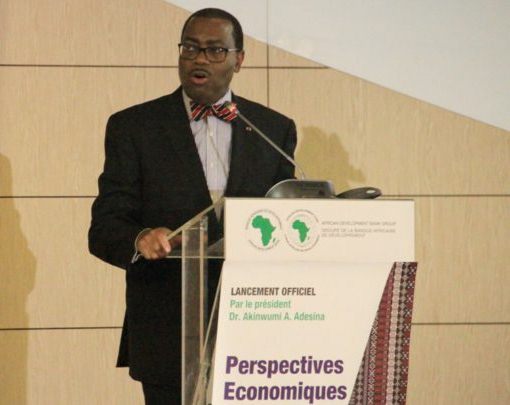Africa is expected to witness an economic growth rebound of 3 percent in 2021 against -3.4 percent in the worst-case scenario for 2020 if the Covid-19 crisis is not contained, the African Development Bank (AfDB) said in a supplement to its “African Economic Outlook 2020 report.”
According to the supplement, nearly 49 million Africans could be plunged into extreme poverty as a result of the pandemic, particularly in West and Central Africa, where the virus continues to spread.
The forecast in the African Economic Outlook 2020 report, released on January 30, noted that Africa’s growth was previously projected at 3.9 percent in 2020 and 4.1 percent in 2021.
The supplement warned that growth prospects for 2021 and beyond would depend largely on the effectiveness of African governments in flattening the epidemic’s curve and policies to resume economic activities.
Against this backdrop, governments and development partners need to respond in a more coordinated, focused and timely manner to effectively mitigate the impact of the Covid-19 crisis, the AfDB suggested.
“To resume economic activities, policy-makers should adopt a gradual and incremental approach that carefully assesses the trade-offs between restarting economic activity too quickly and preserving the health of populations,” said Charles Leyeka Lufumpa, the Bank’s Acting Chief Economist and Vice President for Economic Governance and Knowledge Management.
Economic activities can gradually restart based on the transmission risks of different sectors, the report said, adding that clinically, only 21 of 54 African countries have the capacity to cope with epidemics.
The supplement showed that the pandemic’s curve in Africa is gradually flattening.
However, given the inadequacies of health systems and social protection, the virus remains a threat to human lives.
According to the Bank’s report, Africa could lose between US$145.5 billion and US$189.7 billion in growth in 2020.
The AfDB Director of Macroeconomic Policy, Forecasting and Research Department, Hanan Morsy said the supplement showed that for the first time in half a century, Africa would face an economic recession due to the fallout from the Covid-19 pandemic.
This would affect progress on poverty reduction as an estimated 49 million Africans could be pushed into poverty, with an estimated 30 million jobs on the brink of disappearing.
It also suggested new labour market regulatory policies to protect workers and jobs, as well as structural policies to enable African economies to rebuild and improve their resilience to future shocks.
Tourism, transport and leisure will certainly be the sectors that will take the longest to recover.
Between 2017 and 2018, Africa’s tourism and travel sector grew by 5.6 percent (international average of 3.9 percent), the report revealed.
According to Morsy, the supplement predicted that in a worst-case scenario, 49 million more Africans could be pushed into extreme poverty by the consequences of the pandemic.
The number of people living in extreme poverty in Africa (using the international poverty line of $1.90) could rise to 453.4 million in 2020 as a result of the pandemic, against 425.2 million in a non-pandemic scenario.
According to AfDB, people in West and Central Africa are at a higher risk of falling into extreme poverty as a result of the pandemic, but Covid-19 could also exacerbate poverty in Eastern and Southern Africa.
Confirmed cases of Covid-19 in 54 African countries amounted to 304,642 and 8,087 reported deaths as of June 22, 2020.
But according to the supplement, in reality the reported figures were probably higher thanks to limited testing capacity in most countries.
AP/ls/lb/as/APA


